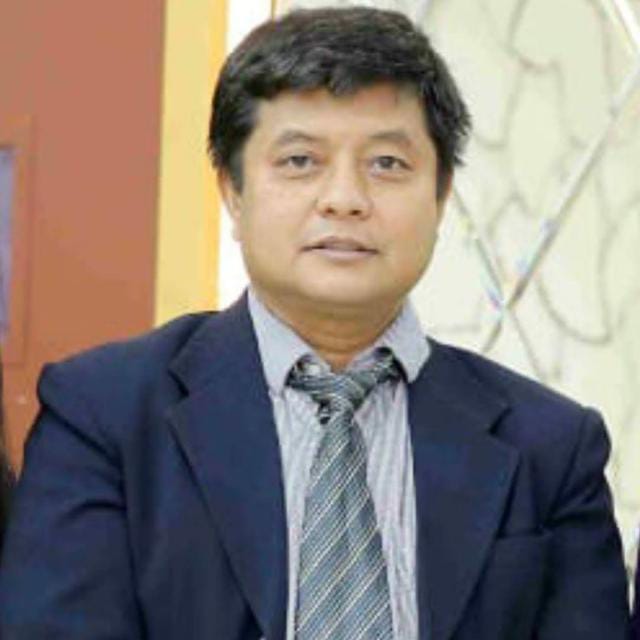Editorial
Unleashing Unity: A Synodal Mandate for the Catholic Church in Northeast India
Opinion | Editorial | James Pochury | 16-May-2024

As India engages herself in a general election since April 19th and braces for results on June 4, 2024, the air is thick with anxiety. The potential return of the Modi-led BJP, with its fascist undertones and anti-minority stance, threatens the very fabric of our democracy. This fear is not unfounded or simply a perceived notion, but one based on what the country experienced in real time since 2014. There were clear indications and hints that if the regime returns to power, the onslaught on citizen rights, particularly of the minorities and marginalized, was likely to be even harsher. In the Northeast India, the intention of the BJP to make life difficult for the Christian community was spelled out by non-other than Himanta Biswa Sarma, the Chief Minister of Assam. In one of his incendiary remarks, the BJP strongman of the region vowed to "wipe out" the Christian community, a remark that cannot be simply brushed aside as usual political rhetoric, but read as hate-filled intention of the overall sinister design.
Amidst these disturbing signs, the Catholic Church could emerge as a beacon of hope and resilience, not only for its faithful, but also for the Christian community at large. That will however be possible if only the church leadership could embrace the horizon from a vantage point of abundance rather than scarcity. In the spirit of "justice must not only be done but also be seen to be done," many interventions are perhaps waiting to be initiated and delivered. For instance, under the leadership of Fr. George Plathottam, the Executive Secretary of FABC Social Communications, a process of collectivization of Indigenous peoples' activists and leaders in Asia is being facilitated. More such initiatives should be grounded at various levels of the Church, where the majority of the faithful are indigenous people—an essential focus in the Synthesis document.
Factually, the voice of the lay people has been overlooked and side-lined in the Catholic Church for far too long. But now, guided by the spirit of synodality and understanding of the nuanced forms of power, the lost ground is perhaps being reclaimed. The impetus must be allowed to continue because the active participation of all stakeholders is essential for the church’s growth, unity, and strength, particularly if it has to stand up against the agenda of a fascist regime. It is imperative that the church understand the principles of power over, power within, power with, and power to. "Power over" in the traditional church hierarchy, characterized by authoritarian leadership and control, must make way for a more inclusive and participatory model. The Synodal Church can no longer afford to be seen as dictatorial and authoritarian within its precinct, just like the present secular regime that we so despise. Instead, it should encourage the spirit of collaboration. The principle of “power within" must be accorded the highest priority if at all we are to stand up as ‘that beacon of hope’ in the region in amplifying the Christian voice.
"Power to speak” is the ability to bring about change and transform existing systems and structures. It is about empowering individuals and communities with the tools, resources, and opportunities they need to shape their own destinies—in this case, the church. It encourages everyone to contribute their best. Therefore, despite strong opposition from conservative factions within the global church, Pope Francis is promoting a culture of meaningful participation in the church. It is imperative that we remain steadfast in our progressive commitment to the wisdom of Holy Father. We cannot allow invisible power, hidden power, and visible power to continue at the cost of undermining the prospect of abundant lay leadership in the church. Platforms like parish councils, pastoral councils, and diocesan synods, where the voices of the faithful can be heard must transform into forums of ‘listening and accommodating’, particularly in our region where decisions directly or indirectly impact the lives of the community.
There are lessons to be learned from the shifting dynamics of religious affiliation in some countries that are known to be traditionally Catholic strongholds, such as Brazil, where the church has been penetrated by evangelical movements, and also from the waning away of the faithful in many countries in Europe. This phenomenon highlights the imperative for the Catholic Church in Northeast India to expand beyond spiritual matters and engage with broader societal, economic, and political realities. It is crucial to ensure that lay Catholics are not relegated to the margins of institutional affairs while simultaneously expecting active participation in church activities and leadership roles. Such culture would only encourage mere attendance at religious rituals without meaningful contribution. It would be against the principle of inclusive and participatory approach advocated by Pope Francis.
As we await the outcome of the elections and brace ourselves for the challenges that lie ahead, let us heed the call of Pope Francis to be a church that is courageous, compassionate, and committed to the common good. Let us stand in solidarity with the marginalized and voiceless, and together, build a future where the peripheries no longer remain on the fringes but gate-crash into all possible democratic spaces as valued and respected members of the Universal Church.
Visitor comments
Leave a comment

Can I connect with Mr James pochury?
06-Aug-2024
Hello Sir I am not sure if I am talking to the right person but did you ever visited a school in Rajasthan somewhere between 1999-2001